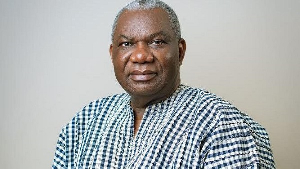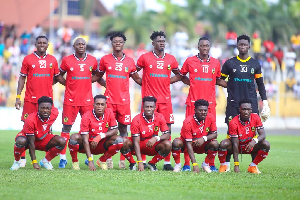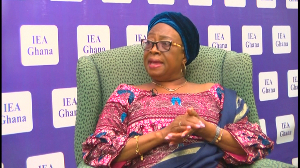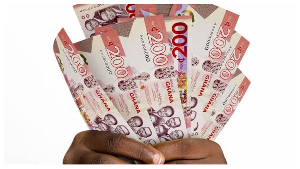The electoral ‘cash cow’ of the New Patriotic Party (NPP) has been the Ashanti Region since the inception of Ghana’s fourth republic.
Some have attributed this to historical accounts of key individuals like Dr Kwame Safo-Adu, Mr Akenten Appiah-Menka among others from the Ashanti Region who were instrumental in the formation of the NPP. It is believed that their involvement in this process at the time made the people of the Ashanti Region feel a sense of ownership towards the party. Subsequently, the NPP has had key members of the party hailing from the Ashanti Region and this has strengthened the bond between the NPP and the Ashanti Region. This is evident in the consistent majority of votes the NPP gets in the Ashanti Region in Ghana’s general elections since 1992.
The NPP has had the highest vote share in the Ashanti Region in every of the eight (8) general elections since 1992. The statistics below show the percentage of total votes in Ashanti Region that NPP has got in each election.
1992 (Prof Adu Boahen)-60.5%
1996 (John Kufuor)-65.8%
2000 (John Kufuor)-74.8%
2004 (John Kufuor)-77.0%
2008 (Nana Akufo Addo)-72.5%
2012 (Nana Akufo-Addo)-70.9%
2016 (Nana Akufo-Addo)-76.3%
2020 (Nana Akufo-Addo)-72.8%
Source:https://ghanaelections.peacefmonline.com/pages/2020/president/ashanti/
It can be observed from the data above that there was an increasing appreciation trend of vote share in the Ashanti Region from 1996 to 2004 elections when the party was being led by John Kufuor who is Asante. This trend ended in election 2008 with a decline of 4.5% with an increase in the number of registered voters in the Region when Nana Akufo-Addo, an Akyem took charge to lead the party. After 2008 election, there has been fluctuations of vote share for the NPP in the Region, where there was a further decline from election 2008 to 2012, an appreciation in 2016 election and a decline again in 2020 election.
Some political analysts have argued that these fluctuations may either be evidence of the Ashanti Region’s disapproval of Nana Akufo-Addo, an Akyem who is not one of them leading the party as the Region would have preferred Alan Kyerematen, an Ashanti to lead the party taking after John Kufuor in that NPP presidential primaries in 2007 or the fact that Nana Akufo-Addo selected Dr Mahamudu Bawumia, a Mamprusi as running mate where an Asante did not feature on the ticket of the NPP going into those elections (2008, 2012, 2016 and 2020).
However, it is believed that this argument of the Ashanti Region holding back in vote share for the NPP when the party is not led by an Asante or when there is no Asante on the ticket can better be substantiated in election 2024 if Dr Mahamudu Bawumia, a Mamprusi and current leader of the party selects a non-Asante as running mate and the vote share in the Ashanti Region for the NPP experiences a decline. It is probably for this reason that some members of the leadership of the NPP have hinted that the running mate of Dr Mahamudu Bawumia will be an Asante.
Overall, this electoral love affair between the NPP and the Ashanti Region has been a profitable one especially for the NPP. The Ashanti Region is the second most populous Region when it comes to registered voters in Ghana with 3,019,178 registered voters for election 2020 after Greater Accra Region’s 3,528,996 registered voters and to be in an electoral love affair with such a Region that assures the party more that 70% vote share, in my opinion is a profitable relationship for the NPP.
The worry here is that over the years, this electoral love affair has made the NPP unreasonably complacent in government performance. There is no dedication to perform outstandingly well in government dreading election defeat because they can always ignite the sense of ownership towards the party among the Asantes and automatically get the needed number of votes from the Ashanti Region going into elections for victory.
In my view, it has become a one-sided relationship with one party (Ashanti Region) always giving and the other (NPP) always receiving and I believe that the NPP is gradually taking the Ashanti Region and Ghanaians in general for granted.
Voters especially in political party strong holds must reorient themselves to understand that default en bloc voting pattern without critical assessment of political party performance in government is affecting the drive of political parties to provide equitable development in Ghana. It is either more development is sent to political party strong holds as an incentive for more votes in next election at the expense of other areas because they are not electorally viable or it is the case of complacency where the political parties know that they will automatically get the votes from their strong holds to secure them election victory so they do not need to drive development to those areas.
Voting should be seen as a tool to reward governments that live up to expectations and punish governments that do not. The electoral love affair between political parties and their strong holds needs to be two-sided, where votes are earned based on good governance performance in that area and in the country at large.
Chris Atadika
Doctoral Researcher
University of Ghana
Opinions of Tuesday, 2 April 2024
Columnist: Chris Atadika



















